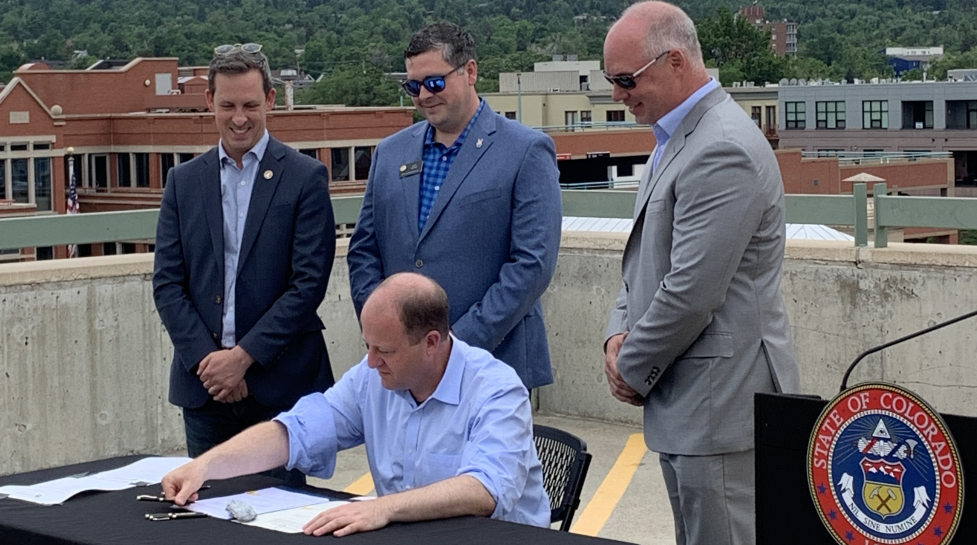Polis: Solar “a critical part of our energy future”
The rooftop of a Boulder parking garage provided stunning views as Gov. Jared Polis signed into law a suite of bills Monday under a newly installed canopy of solar panels. One of those bills, Senate Bill (SB) 261, will expand access to renewable solar energy across the state.
Prior to the passage of SB-261, state law limited the size of on-site solar installations to 120% of a customer’s historical annual energy usage. Under this system, buildings with lots of room for solar but low electricity usage — like warehouses or parking garages, for instance — left a lot of solar potential unused. The new law expands the size of systems that can be installed and gives property owners more flexibility about where to site solar.
In his remarks Monday, Senate Majority Leader Stephen Fenberg touted the additional environmental and economic benefits of the bill. Under Colorado law, now residents or businesses can build new solar arrays off-site, but still use the energy and associated bill savings for their buildings. “This bill opens the door for hundreds of millions in investment for clean, solar energy,” said Fenberg.
City of Boulder – Xcel Energy Partnership pushed for bill’s passage
The bill’s passage marks an early achievement for the city’s partnership with Xcel Energy.
Elimination of the 120% rule has long been a target for the city and Boulder community. Last year, the rule became one of many focal points of the emerging partnership between Boulder and Xcel Energy. Under the partnership, which has since been approved by voters, the City of Boulder and Xcel Energy have agreed to work together at the state legislature to lobby for changes. The first target for this joint effort: eliminating or substantially increasing the 120% rule.
Local activists, city experts and industry proponents all played key roles in the bill’s passage. So did Xcel Energy, the state’s largest electric utility and powerful force at the capitol.
“I especially want to thank the City of Boulder for their leadership,” said Fenberg. “That really is what led to this bill coming to fruition.”
